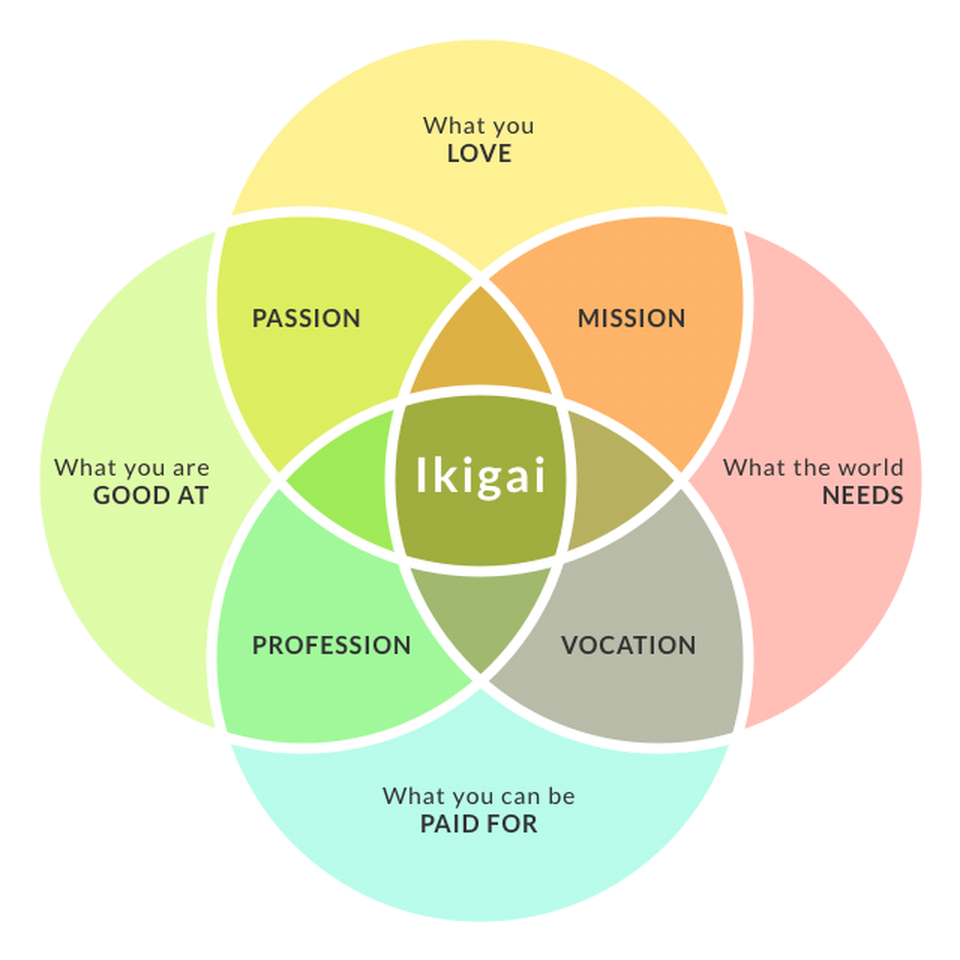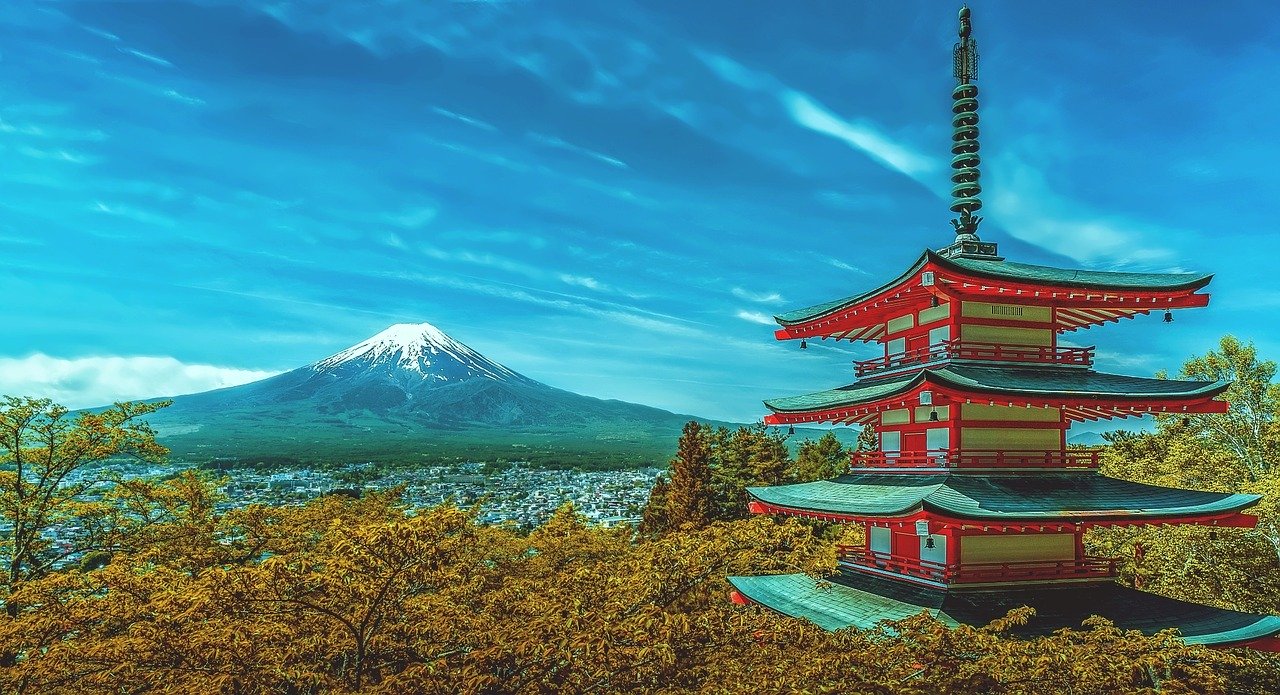One of my highschool friends mentioned last week in our WhatsApp group a book that she read. The name of the book was; Ikigai: The Japanese Secret to a Long and Happy Life, by Héctor García and Francesc Miralles. As it sounded quite interesting, I decided to read it. But when I checked our library, I have found out that there was a waitlist for it. Alternatively, another book in the audiobook format was available. How to Ikigai: Lessons for Finding Happiness and Living Your Life’s Purpose, by Tim Tamashiro – a fellow Canadian.
As I believe everything happens for a reason, I borrowed that book instead and listened to it without break in five hours. Good thing I did. Because most probably if the other book would be available, I would not try this second option. Though I am still planning to read the initially recommended book as soon as it is available by our library.
For those of you who never heard of the concept of Ikigai before – just like me, here is a short intro from Wikipedia. Ikigai is a Japanese concept that means a reason for being. The word refers to having a direction or purpose in life, that which makes one’s life worthwhile, and towards which an individual takes spontaneous and willing actions giving them satisfaction and a sense of meaning to life.
Ikigai gently pushes you to the path that leads you towards something meaningful, not only for you but for others. It encourages you to;
- do what you love,
- do what you are good at,
- do what the world needs,
- do what you can be rewarded for
And if you can find something that provides you with all these four benefits at the same time, it means that you have found your Ikigai.

Focus of Ikigai
Ikigai focuses on improving your well-being by literally convincing you to use these eight tools:
- Active kindness
- Physical exercise
- Social connection
- Meditation
- Time affluence
- Good sleep
- Gratitude
- Goal setting
Ikigai tries to demonstrate that the notion of happiness is not connected to how much money you make, or what kind of car you drive. It helps you to find your life purpose using these eight tools actively. Furthermore, expressing yourself in a manner that will not only satisfy you but also benefit the world around you.
Happiness matters
It’s never late for making a life-changing decision in your favour. Because your happiness matters. Because happiness is contagious. If you prioritize your happiness, the level of joy you feel will reflect on your loved ones’ faces.
Think about it. At the end of the day, life is about the amount of joy you experience. About the happiness, you give and get. Why not finding something that you love to do, and that you are good at, which also benefits the world and your pocket at the same time?
I always thought people who make a business out of their hobbies are the luckiest because they do something they love doing and also make money from it. That’s the idea.
Tim Tamashiro provides you with an easier way of applying the Ikigai concept. In case you find it a little confusing or hard to implement. He says that you can start by trying to aim for half Ikigai. Meaning, finding something you love and you are good at. As you will start shining with pride and happiness, the world will notice you and opportunities for you to share your work with others will present themselves sooner rather than later. And eventually, the fourth aspect of Ikigai will appear as some kind of income for you.
Wouldn’t that be considered a win-win situation? It certainly would.
There’s so much to learn from countless cultures around the world. Japan is one of those cultures with hundreds of years’ worth of wisdom. I thank my old friend for bringing this knowledge that I wasn’t aware of before to my attention and ありがとうございます – Arigatou gozaimasu – Thank you Japan.

[…] concept of being in flow is very similar to knowing what your Ikigai is. The difference is that flow is a temporary event, whereas finding your Ikigai is a more […]
[…] this is my Ikigai. It’s my life […]